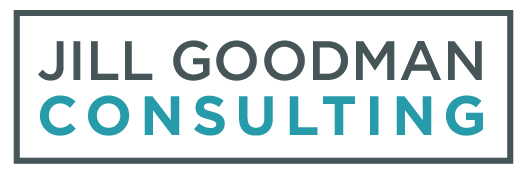Alumni Are Not Maple Trees
“My board wants us to create an alumni relations program,” said the new head of a K-8 school founded 40 years ago.
“Tell me more about that,” I said.
“We just finished our strategic plan and there are three pillars to the plan. Each of them requires funds we don’t have, though we can fund some of it out of reserves. I’m concerned about taking on new debt,” he said.
Looking at the school’s recent 990, I could see the school was running a newly acquired deficit.
The head of school continued, “The pillar I’m most concerned about is the renovation of our middle school building. I mean, the project will surely meet student needs, and we know it will drive enrollment and curb attrition as we compete with area schools with newer facilities. But, we have almost no contact with our alumni or their families,” lamented the head, “and apparently we haven’t maintained contact with the donors who built our current building.”
“When does the board plan to start the project,” I asked.
“Next year. They are full steam ahead and I feel like we are scrambling to keep up. I have meetings with architects and engineers, but our development program is not ready,” he said, “and the board thinks the alumni are the solution to all this. We just need to find them out there in the forest or something and tap them like maple trees.”
We laughed at the absurdity of the situation, and not at the real financial burden the school would undertake.
“It sounds like the board could use a bit of professional development about the reality of advancement of a school and their role in it,” I suggested.
From there, we brought the development director, the CFO, the board chair, and the development committee chair into conversation to identify the disconnects and determine how to bridge the gaps in knowledge and relationships with the alumni.
Even with a bit of knowledge and professional development, alumni relations can still go very wrong. Here are four ways to approach a nascent alumni relations program:
Use your existing program. Don’t create a reunion or another specific event for alumni if one has never existed before. Do invite alumni to a cherished event that everyone remembers and create a space for them at the event (food, host, and veteran faculty). Collect contact information and follow up with each person individually after the event to gather feedback.
Look at the names on the walls. Most schools have a few donor acknowledgement walls that highlight donors from past campaigns. Even if your school did not keep records, start with the donor walls. Research the names, ask your most veteran faculty and families about each person on the list.
Don’t ask for a gift unless it makes sense. Does it make sense to ask an alum or alum parent that your school has not talked to in 15 years for a gift at the first meeting? No. So, don’t do it. Does it make sense to ask alums for a gift who are still in high school or college and don’t earn their own money? No. So, don’t do it.
Be relevant. If you have four decades of alumni, survey or focus group them (however many you can find) by decade. How can you continue to be relevant in their lives and offer value? The answer to that question will be different for your youngest alums, your oldest, and each decade in between. Once you have a sense of how to be relevant, you can work on low-cost programs or activities that prove to them that being an alum of your school is an advantage.
Remember, alumni relations should positively impact all aspects of the school, not just development. In fact, if you think development dollars are the main reason that an alumni relations program exists, you are mistaken. Alums have, and regularly exercise, their power in admissions and retention decisions for your current and prospective parents, mostly unbeknownst to you. The positive word of mouth from your alumni and their general success in life weigh heavily as parents make decisions about your school. So, if you are crafting a program or revitalizing one, be sure to share the responsibility and leverage the admin team and veteran faculty members in this effort. The entirety of your school community benefits from a well-crafted, well-stewarded, and thoughtful alumni relations program.
To return to our tree metaphor, you must prep the soil, plant the seeds, tend to the maple trees for years, before you can tap them for syrup. And even still, alums are not maple trees. Let’s talk about the people who graduated from your school and the best ways to move forward together.
The author, Jill Goodman, is a consultant who works with independent school leaders to address budget concerns by increasing enrollment retention, building capacity in development, and enhancing leadership skills. Learn more about all services here.
Image credit: valleyboi63/Shutterstock



